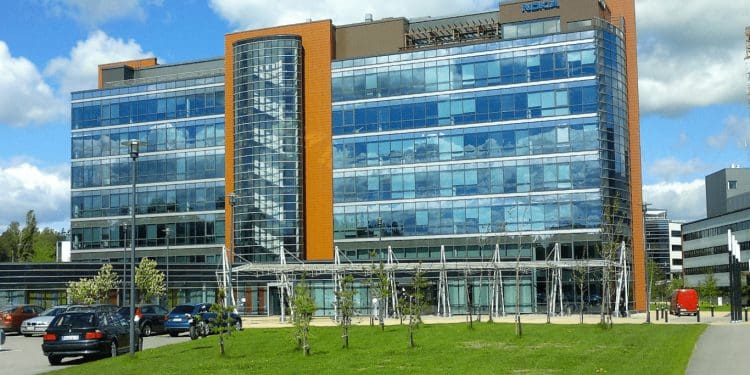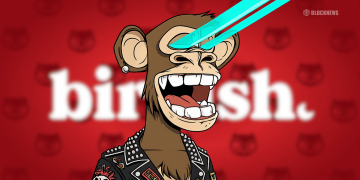- Nokia is exploring the use of the metaverse to aid workers in remote locations, such as beer brewers and aviation mechanics.
- The company has established two laboratories to examine the metaverse and the technologies that support it.
- The company aims to merge industrial operational technology (OT) systems with the metaverse in the near future for better monitoring, analysis, and control of operations.
Nokia has recently launched its new enterprise-grade blockchain-based data marketplace infrastructure service, the Nokia Data Marketplace. This move by the company represents a significant step forward in blockchain and decentralized technology. Let’s take a closer look at what this new service offers and what it means for the industry’s future.
Nokia is well-known for producing high-quality consumer mobile phones, but in recent years, the company has shifted its focus to developing tools and technology that “deliver the internet.” The launch of the Nokia Data Marketplace is a testament to this focus, as the company has entered the enterprise blockchain world. The new service offers clients across diverse industries the ability to participate in a secure private, permissioned blockchain network.
What is Nokia Data Marketplace?
Nokia will allow clients to participate in the blockchain network and utilize the benefits of decentralized technology for trusted data transfer. This will enable various vertical use cases, including electric vehicle charging, environmental data monetization, supply-chain automation, and more. The sheer integration potential of the Nokia Data Marketplace means that other communication service providers can also develop similar networks, further expanding the reach and impact of the technology.
The launch of the Nokia Data Marketplace indicates that enterprise blockchain is here to stay. In recent years, the market sector has experienced significant growth and has been touted as a primary adoption driver for 2023. This growth has positively impacted the price action of decentralized ledger technology projects that are building solutions in this market segment.
Nokia’s new platform also has the potential to drive advancements in artificial intelligence and machine learning through blockchain-based federated learning protocols. With the Nokia Data Marketplace, enterprises and communication service providers (CSPs) can now benefit from richer insights and predictive models to drive digital ways of working and tap into new revenue streams.
Nokia’s Foray into the Industrial Metaverse
Nokia is not just limited to the world of blockchain and data markets. The company has also been exploring the potential of the Metaverse to assist workers in remote locations. Nokia established two laboratories last year to thoroughly examine the Metaverse and the technologies that support it. The company has collaborated with an Australian university to build a 5G-connected microbrewery using metaverse technology. Using augmented reality (AR), researchers from a brewery tech lab in Sydney have worked alongside researchers from a twin facility at Dortmund University in Germany.
Nokia is also using the Metaverse in South Australia to assist Cessna aircraft technicians at remote airports potentially. The company collaborated with a business that had a virtual Cessna plane, allowing technicians to replace wheel or engine components with the help of audio instructions. Nokia’s focus on the Metaverse has shifted from its traditional consumer-centric verticals to providing solutions for what the company calls the ‘industrial metaverse.’
According to Nokia, the next few years will see the merging of industrial operational technology (OT) systems with the Metaverse for monitoring, analysis, and direct control of operations. As IT systems in headquarters merge with OT on the factory floor, the distinction between these two business-focused metaverses will blur.













